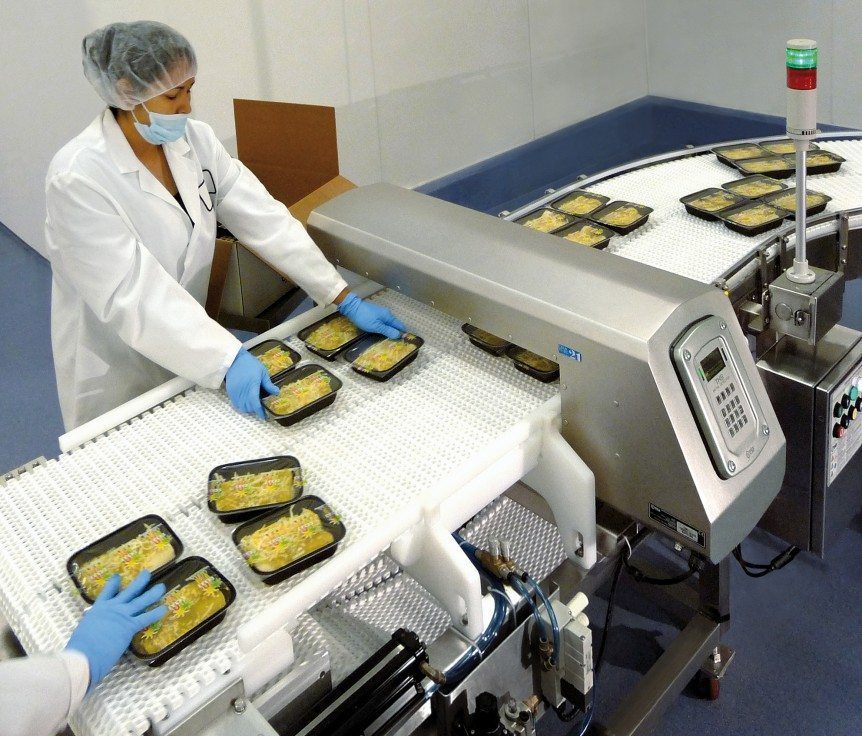Detecting metal contamination in food products has obvious safety implications for both the manufacturer, retailer and consumer alike. It is actually one of the applications that has driven the development of industrial metal detection.
To correctly select a food industry metal detector you need to consider both the application itself as well as the inspection process so you can verify you are meeting your statutory obligations.
Points to consider when selecting
- the nature of the product you are inspecting
- are you protecting the food or another piece of equipment?
- is it a wet or dry application?
- are there temperature implications?
- are there special cleaning considerations?
- how is data reported?
Your Product
The nature of your product and the point in the process are the first things to consider. Does it contain iron or salt for example that may trigger false readings? Are we looking at a high volume bulk flow or a lower volume end of line system? If we are protecting equipment, what is the minimum size of particle that this equipment can allow to pass through without damage?
If your materials are conductive due to iron, salt or moisture content, the sensitivity of the device will need to be matched to the variations in the material composition.
Talking these elements through with your supplier will allow the first level of equipment selection.
Styles of Food Industry Metal Detectors
The production process will also determine if the detectors are to be conveyorised, mounted in a pipeline or throat mounted on a filling and packing system. This also then leads on to the types of rejection system needed to isolate contaminants when detected.
The Environment
Having looked at the type of equipment you must now consider where it is going to be mounted. What are the influences that may effect its performance? Are there high temperature variations? Do you have high pressure wash down facilities so need higher IP ratings? Are there high levels of electro magnetic interference?
Again your supplier will be able to lead you through the options and identify potential problem areas.
Conclusion
As with any industrial process the initial consideration often overshadows the less obvious ones. So when considering your choice of food metal detector, it is not just the contaminant you must think about, the other factors we have discussed may have a significant impact on the success of your installation.
Please call us if you would like advice on equipment selection and we will be glad to help.

